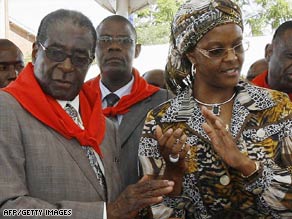
This year’s recent opening of four Confucius Institutes-Togo, Nigeria, Liberia, and Bostswana-sheds light on the growing and powerful influence of the Chinese language in African countries. Confucius Institutes, the most prestigious Chinese language program abroad, is increasingly active in promoting the teaching of the Chinese language globally. Within the last decade, the establishing 21 operational Confucius Institutes in 13 African countries has helped to reshape China’s soft power.
Since the 2000 Forum of Chinese-African Relations Forum (FOCAC), a rising number of African governments requested to build Chinese language centers. Many African leaders believe the Confucius Institutes are positive contributors toward economic and cultural gain for African students and business workers.
Confucius Institutes in Africa are seen as the driving force in globalizing the African educational systems. The Confucius Institute goes to great lengths to enhance cultural understanding on the African continent. Each year, the Institute provides innovative programs that are helpful in strengthening relationships and harmonizing cultural differences. After the first Chinese Institute opened in 1995 at the University of Nairobi in Kenya, the Institute only offered a certificate program. The certificate program provided a variety of language-related courses focusing on Chinese history, economics, and tourism. Throughout the following years, the Kenya Institute offered additional programs, such as the career counseling services, student exchange programs, and cultural activities open to the public. After this year’s 2008 Olympic Games in Beijing, the demand for more Confucius Institutes has doubled. Presently, the Institute now offers a summer-intensive language camps for young people, who are encouraged to visit and explore China.
In the near future, it is predicted that the Confucius Institutes will have African students use the Second Life Island Services, which is a 3-D internet based virtual world tutorial program. This may be the first time African students will be exposed and educated to use avatars as a means of first-hand practical communication for Chinese lessons. The program allows African students to explore to different islands, where they can interact with different groups of people.
Confucius Institutes are also very active in local African communities. As a result, the Mandarin language is gaining popularity and many African local communities are experiencing extraordinary cultural changes. For instance, the city of Nairobi launched its first Chinese International radio stations; providing daily Chinese-speaking programs. In South Africa, the Confucius Institute hosts seasonal Chinese Musical Festivals to include Chinese book fairs and movie weeks. Also, the purchases of Chinesepod, a daily language podcast course, is one of the hottest learning commodities in South Africa. A growing number of South African businessmen are exclusively downloading Chinesepod for personal language lessons.
Consequently, the spread of the Confucius Institutes help to boost a mutual trust relationship between China and African countries. African students have publicly expressed their appreciation for this opportunity to attend the Confucius Institute in their own countries. Many of them believe that Confucius Institutes are a way to escape economic hardship by providing a competitive edge in the global job market. Since China maintains one of the world’s rapidly growing economies, African students deeply believe that becoming fluent in the Chinese language promises a brighter future. The advantage to learning Chinese will open doors for more job and educational opportunities. One success story is the first 2006 Kenyan Confucius Institute Graduate class at the University of Nairobi. A majority of graduate students were able to work in travel agencies, the oil industry, and telecommunications. Others earned student exchange scholarships to attend the University of Beijing.
One of the biggest challenges for this new milestone is whether the Chinese Ministry of Education can meet the growing demand for more Confucius Institutes in Africa. Inadequate funding limits the high demand to build more Institutes in Africa. During fiscal year 2007, the Ministry of Education allocated more than 300 million U.S. Dollars for accommodations, teaching recruitment, and learning material. However, Confucius Institutes only admit a small portion of students due to limitations in resources and a shortage of instructors. The Office of The Chinese Language Council intends to propagate the Confucius Institutes as much as possible throughout the world. By 2010, the Council would like to have at least 500 Confucius Institutes abroad.
Western criticism challenges the Confucius Institutes reputation. The global spread of Confucius Institutes raises competiveness. As African nations continue to lean toward the “look-east” policy for educational purposes, China’s growing soft power threatens United States and European efforts in Africa. Critics have accused the Confucius Institute of being an example of the Chinese Communist Party’s imperialist behavior that is trying to defeat Western culture by “brainwashing” African nations. China strongly believes that they are one that understands Africa better because they were also a society that was exploited by Western imperialism.
If the Chinese do have in mind to defeat the Western language, then the race against the European descendent languages still remains unavoidable in Africa. Despite the fact that the Chinese language has grown to the third most popular foreign language, the English and French language stand to be the strongest official foreign language in Africa. More than one-third of the continent speaks western languages as their official language. However, the Chinese language gained so much momentum during President George Bush’s administration. For the past eight years, the international relationship with Africa has somewhat weakened. Due to the war on terrorism, high level visits to Africa were cancelled and foreign aid has been reduced.



